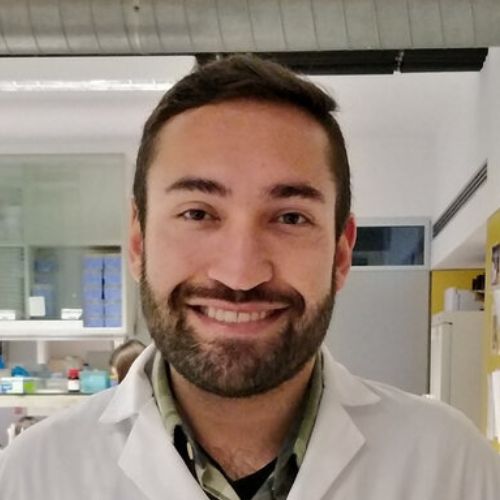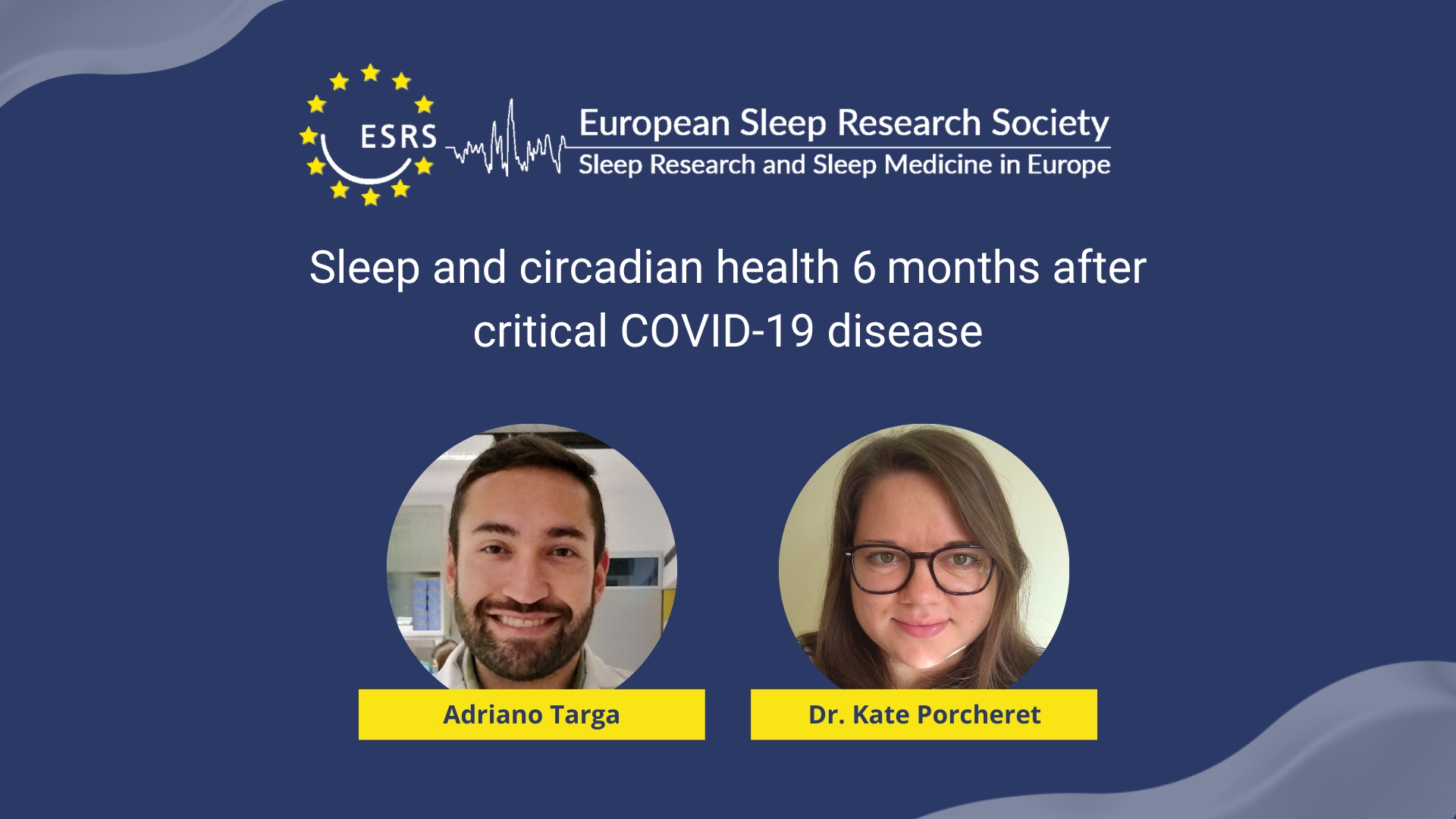Sleep and circadian health 6 months after critical COVID-19 disease

Adriano Targa
Postdoctoral Researcher, Centro de Investigación Biomédica en Red de Enfermedades Respiratorias (CIBERES), Biomedical Research Institute of Lleida, Spain
Adriano Targa and colleagues recently published a paper looking at sleep and circadian health entitled “Sleep and circadian health 6 months after critical COVID-19 disease”. Dr. Kate Porcheret from the ESRS’s Digital & Communications Committee sat with him to discuss their work further.
The study looked at the sleep and circadian patterns of 145 hospital patients who became critically ill from contracting the COVID-19 virus and ended up in the ICU. Its main objective was to perform a descriptive analysis during the three and six months follow up (post-ICU discharge) to fill the literature gap in this type of study, especially considering validated questionnaires and objective tools to evaluate the sleep and circadian health.
It was observed that at the six month follow up, almost half the population presented poor sleep quality according to the Pittsburgh Sleep Quality Index (PSQI) which was confirmed by objective analysis. Other observations included a high fragmentation of the rest-activity rhythm among the population. A slight improvement in sleep quality but no difference in terms of the rest activity rhythm was also evident when comparing the 2 follow-up visits.
He also noted that while there might be some causality stemming from the detrimental effects of the ICU environment on sleep and circadian effects, their study was not designed with this in mind. Regardless, this should not exclude causality from the disease itself due to its close relationship between the immune system, sleep and circadian health.
For even further insights on the results of other analyses to predict sleep and circadian health, and the correlation among different outcomes of COVID-19 at the 6-month follow up, watch the entire interview below and read the entire publication here.
ESRS Reminders
Upcoming ESRS Virtual Events
Registration is now open for 2 upcoming ESRS virtual events:
- On 1 Feb 2023, ESRS President Pierre-Hervé Luppi will moderate a virtual roundtable discussion on Sleep Control, Stress and Emotion with expert panellists Xiao Yu, William Wisden, Takeshi Sakurai and Emi Hasegawa. They will examine new breakthrough evidence from their recent publications.
- On 10 Feb, GEF Member Jaime Devine will host a webinar recognising the UN International Day of Women & Girls in Science. Adriana Michalak, Brooke Aggarwal, Jessica Mong and Maria Hrozanova will engage in a series of short talks and panel discussions on their work examining sex differences in #SleepResearch.
2023 ESRS Grants & Fellowships
2023 Sleep Medicine Examination
Sleep & Breathing 2023 – Registration Open
Recent publications from ESRS members
- Salemi et al. (2023). Humanin gene expression in subjects with Parkinson’s disease. Mol Biol Rep.
- Riha et al. (2023). ERS technical standards for using type III devices (limited channel studies) in the diagnosis of sleep disordered breathing in adults and children. Eur Respir J.
- Lévy & Schiza (2023). Are type III devices the future of sleep disordered breathing management? Eur Respir J.
- Cesari et al. (2023). Polysomnographic diagnosis of REM sleep behavior disorder: a change is needed. Sleep.
- Parrino (2023). Now that automatic processing makes CAP scoring fast and reliable is the sleep field ready for a paradigm shift? Sleep.
- Lopez et al. (2023). Rapid eye movement sleep duration during the multiple sleep latency test to diagnose hypocretin-deficient narcolepsy. Sleep.
- Mendonça et al. (2023). A-phase index: an alternative view for sleep stability analysis based on automatic detection of the A-phases from the cyclic alternating pattern. Sleep.
- Atef, Bargiotas & Youness (2023). Sleep is a fire with smoke: Time to incorporate sleep as a fundamental component in cancer treatment protocols. Sleep.
- Bozic et al. (2023). Coupling between the prelimbic cortex, nucleus reuniens, and hippocampus during NREM sleep remains stable under cognitive and homeostatic demands. Eur J Neurosci.
- Justinussen, Egebjerg & Kornum (2023). How hypocretin agonists may improve the quality of wake in narcolepsy. Trends Mol Med.




